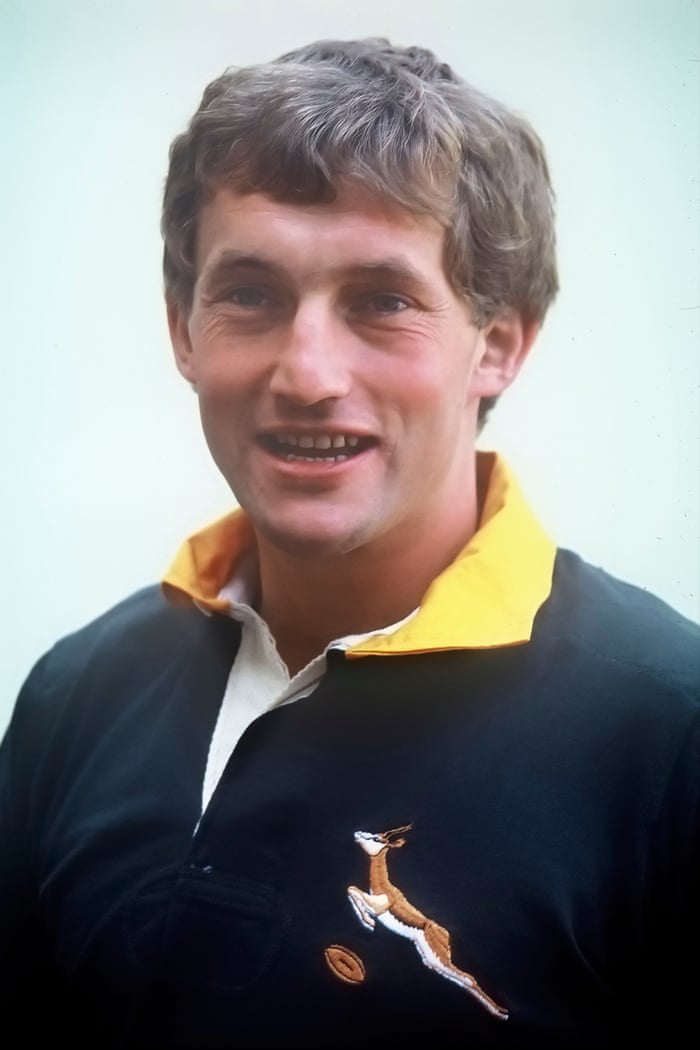Africa
The man the apartheid leaders wanted to kill with a crossbow

The biggest ever controversy to hit Irish rugby happened in 1981.
The decision to tour apartheid ruled South Africa when most of the world’s sporting organisations had been boycotting the country caused a guilt still which lives with some of those on the tour.
John Robbie is one such person. In 1981, Robbie was a young Dubliner obsessed with rugby. By his own admission, it was the most important thing in his life, and he ate, slept and breathed rugby.
He had toured with the British and Irish Lions in 1980 and when the opportunity came to return to the country the following year with the national team, he didn’t have to be asked twice.
Some of his teammates, however, took a different view, refusing to be part of the touring squad. These included prominent team members, Tony Ward and Moss Keane.
Ward had also been on the Lions tour to South Africa in 1980 and seen the effects of apartheid as he toured the country.
It quickly became a political issue with players who had been granted holiday leave for the trip suddenly having it revoked.
Robbie was working for Guinness at the time and now faced a stark choice–keep his job or go on the tour. He chose the latter option and so began his life-changing trip to South Africa.
The Irish team was booked to fly with Aer Lingus from Dublin to London and take a connecting flight on to Johannesburg. However, Aer Lingus staff and unions refused to handle the booking, instead the players left the country for London in their ordinary clothes in small groups before the squad assembled in London for the flight to South Africa.
Normally they would have met in Dublin in their squad tracksuits before proudly embarking on the tour.
Reflecting forty years later Ward said of the departure, I was shocked. It was cloak and dagger stuff to get out of the country.
The South African government made a big deal of the Irish teams’ arrival, with three ministers meeting them at a reception in Pretoria. When word spread that some players on the tour had lost their jobs, cash donations started to arrive at the squad hotels as a show of support.
By his own standards, Robbie didn’t have a good tour and got injured well before it finished.
During this time, he attended a barbeque and got chatting to someone who offered him a sales position in an engineering firm.
Not having a job to go back to at home in an economically depressed Ireland, he gave it a go and forty years later is still there, but his outlook now is the polar opposite of the young man who embarked on that tour four decades ago.
At first, his move to South Africa went the same way as the Lions or Ireland tours he had been on.
He was in a bubble playing rugby for Transvaal with a good job and took in some of the surrounding propaganda, with the anti-apartheid movement dubbed communists and seen as something to fear. His teammates included policemen and government officials whose affiliations were clear.
Eventually Robbie spoke out about the obvious injustices of the apartheid regime, and this brought trouble of its own.
In one incident, he was presenting awards at a golf club in Pretoria and the evening turned nasty with threats of violence against him.
Many years later, one perpetrator apologised for his role in it, but this was indicative of the threats faced by anti-apartheid voices in South Africa at the time.
Robbie found his way into current affairs and was a radio presenter at the time apartheid ended. Known as someone who pulled no punches when asking questions of political leaders, he is clearly proud at being a strong voice when it came to important matters of the day.
He started his current affairs radio show in 1990 and had people from all backgrounds on air, including past political prisoners in the anti-apartheid movement.
His ability to be forthright and the wide variety of political voices on the show didn’t go down well in all quarters, but provided an important outlet for the change occurring in the country.
There were death threats because of his work on the radio, but he continued in the same manner right up to his retirement at the end of 2016.
His stance in the latter years of apartheid is something that has gone some way to assuage the guilt he still feels because of coming over as a player in the early eighties.
This is something he looks back on with a sense of shame. By his own admission, he knew what was going on in the country when he agreed to tour with Ireland in 1981.
After being on the lions tour the previous year, he already had first-hand experience of apartheid and still clearly regrets his decision to travel.
How much a troublesome figure he had become for high-ranking apartheid supporters only became apparent to him years later.
A revelation from a man named Eugene de Kock in a tearoom in Johannesburg in 2015 brought it home to him how close his current affairs show had come to costing him his life.
De Kock is a former police colonel and apartheid assassin. Known as Prime Evil he was sentenced to 212 years in prison in 1996 for crimes against humanity.
He was released on parole in 2015 and when Robbie got to the tearooms to meet him, he could see De Kock laugh as he approached.
The reason for the laughter was De Kock had been instructed to kill Robbie with a crossbow in the early 1990s, De Kock refused.
A baffled Robbie asked why he didn’t carry out the assassination. De Kock told him it was because he killed people who planted bombs, not people who had a different opinion!
